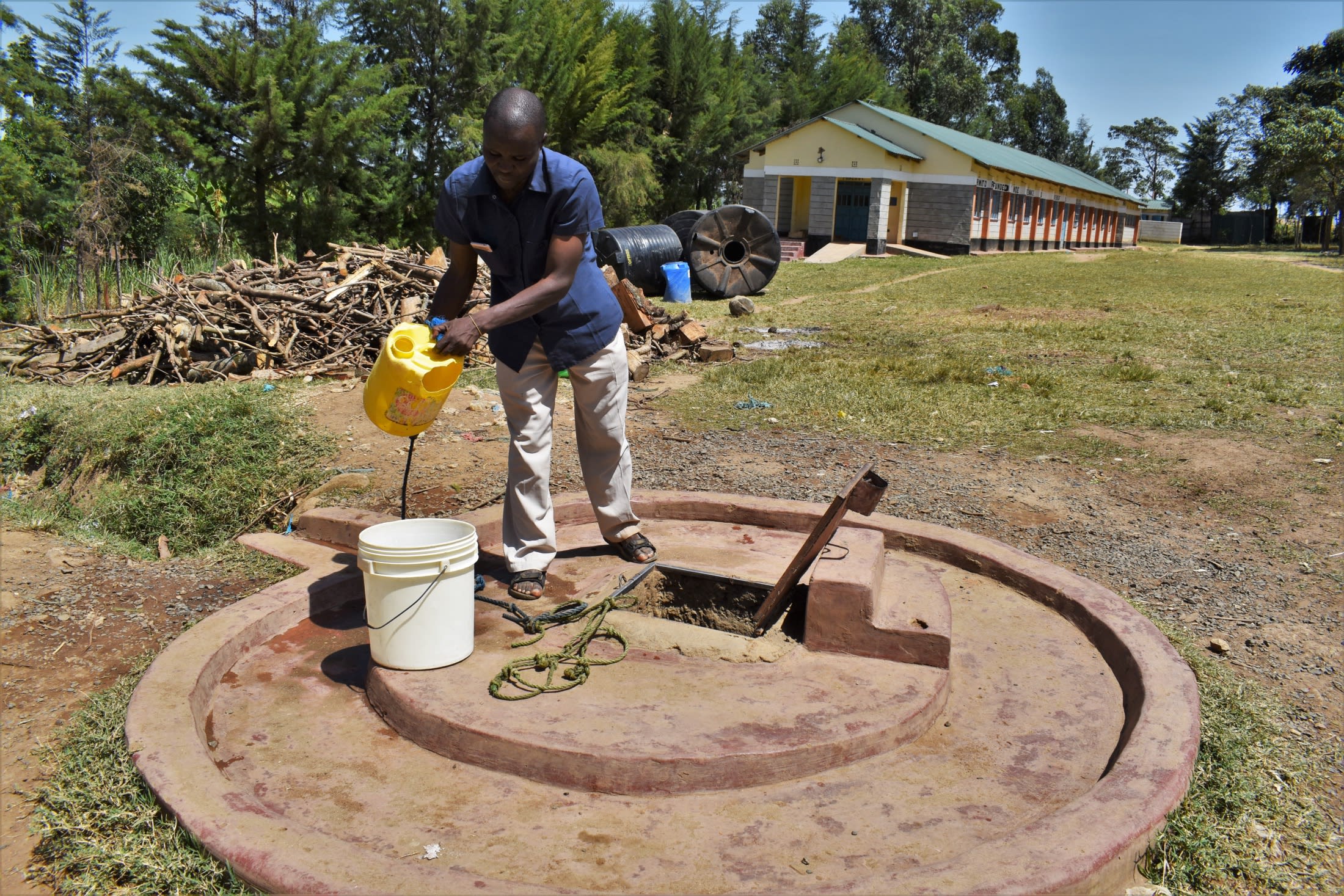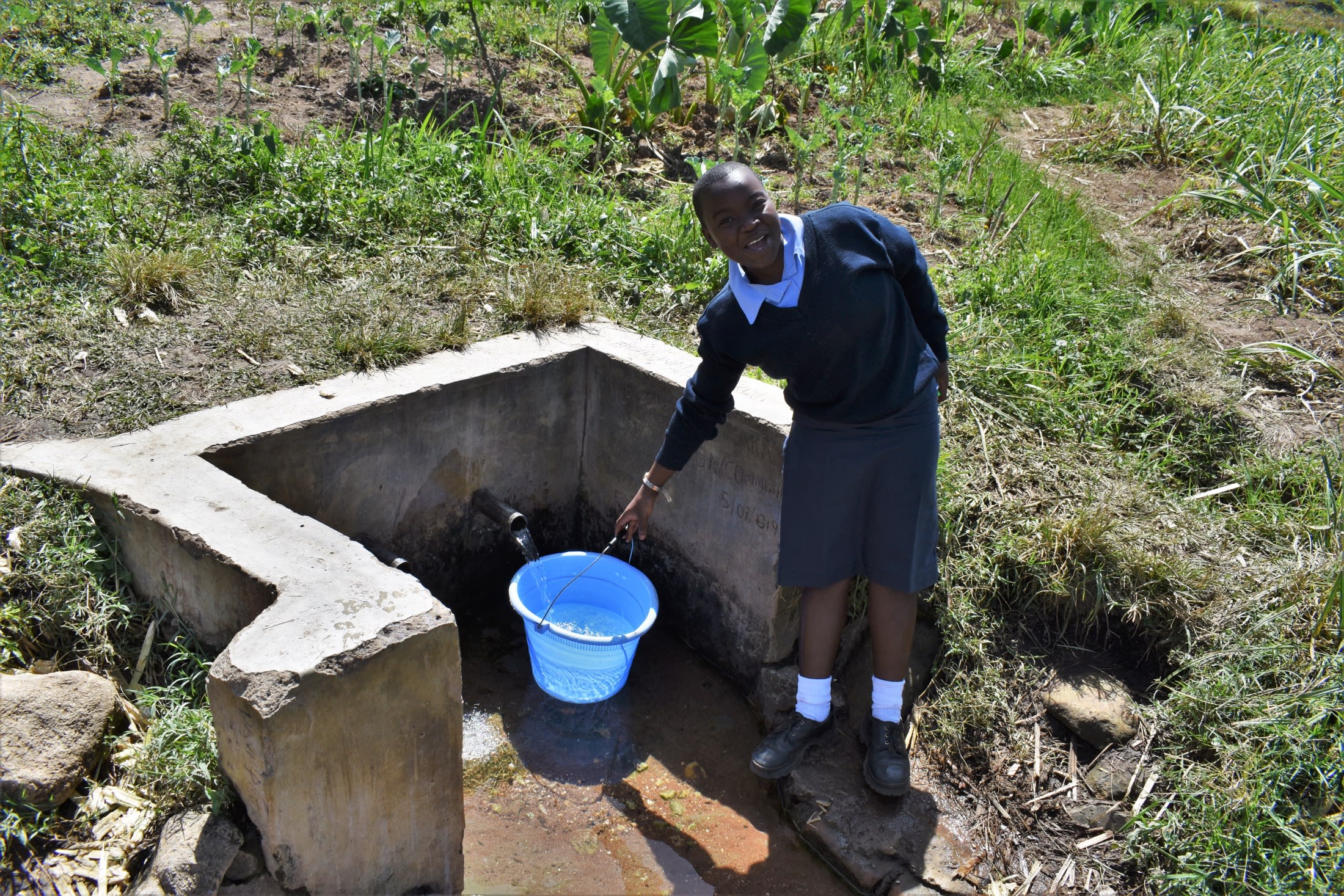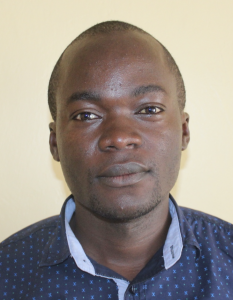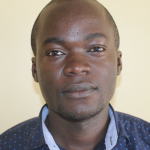Bulapi Secondary School's 1,002 students are tired. Each day, they spend a significant amount of time and energy collecting and carrying water since the school's unprotected dug well does not provide sufficient water for its large population. Still, students cannot collect enough water to meet the high demand, and the school must purchase water from a water-selling truck, which is costly.
The unprotected dug well on the school campus is seasonal and runs low during the dry season. When the well does not produce enough water, students must leave the campus to fetch water from a community spring and carry it back.
When the unprotected well does provide water, it is often contaminated. The collection area is dirty and open to runoff, especially during the rainy season. Students lower their jugs into the well to scoop up water, but their containers are often unclean. As a result of drinking the contaminated water, students and staff alike suffer from waterborne illnesses such as typhoid, cholera, and diarrhea.

"Life has not been good to us," said Sawala Isaac, a teacher at the school shown above, collecting water from the unprotected well. "Lack of enough clean water has really affected our school program in terms of syllabus coverage, and also attending classes some of our pupils miss lessons. As a teacher concentrating on teaching, [having too] few pupils becomes a challenge."
The school program should start early with morning lessons, but the lack of water has interfered with academics since students spend so much time out of school looking for water. The hygiene standards of the school also suffer. Daily cleaning is impossible due to the lack of available water.

Student Maureen S., shown above collecting water from the community spring, said, "Since I joined this school, we have really faced challenges concerning access to clean and safe water, which has really contributed to absenteeism among students, [and] poor performance due to lack of enough time to study. Manual cleaning is not done enough for the entire school, hence [the] hygiene is not up to standard."
It is time for the students of Bulupi like Maureen to concentrate on learning and not carry the burden of providing water for their school. A new well will make that possible.
What We Can Do:
New Well
We conducted a hydrogeological survey at this school and the results indicated the water table beneath it is an ideal candidate for a borehole well. Due to a borehole well's unique ability to tap into a safe, year-round water column, it will be poised to serve all of the water needs for this school's large population, even through the dry months.
The school will help collect the needed construction materials such as sand, rocks, and water for mixing cement. They will also provide housing and meals for the work team, in addition to providing local laborers. We will complement their materials by providing an expert team of artisans and drilling professionals, tools, hardware, and the hand-pump. Once finished, water from the well will then be used by the school's students and staff for drinking, handwashing, cooking, cleaning, and much more.
Handwashing Stations
There is currently nowhere for students to wash their hands after using the latrines or before eating lunch, let alone the water to do so.
The student health club will oversee the two new handwashing stations we will provide, and make sure they are kept clean and in working condition. The club leaders will fill the handwashing stations with water daily and make sure they are always supplied with a cleaning agent such as soap or ash.
VIP Latrines
We will construct two triple-door latrine blocks using local materials that the school will help gather. Three doors will serve the girls and three doors will serve the boys. All of these new latrines will have cement floors that are designed to be easy to use and to clean. And with a borehole right on school property, there should be enough water to keep them clean.
Training on Health, Hygiene, COVID-19, and More
We will hold a one-day intensive training session with students, teachers, and parents. This training will cover a wide range of topics including COVID-19 symptoms, transmission routes, and prevention; personal and environmental hygiene; and the operation and maintenance of the borehole, latrines, and handwashing stations. There will be a special emphasis on handwashing.
Our team of facilitators will use a variety of methods to train, including participatory hygiene and sanitation transformation, and asset-based community development. We will initiate a student health club, which will prepare students to lead other pupils into healthy habits at school and at home. We will also lead lectures, group discussions, and provide illustrative handouts to teach health topics and ways to promote good hygiene practices within the school including handwashing and water treatment. We will then conduct a series of follow-up trainings before transitioning to our regularly scheduled support visits throughout the year.
We and the school strongly believe that all of these components will work together to improve standards at this school, which will help lead to better student academic performance and will help unlock the opportunity for these students to live better, healthier lives.

 Borehole Well and Hand Pump
Borehole Well and Hand Pump
 Rehabilitation Project
Rehabilitation Project























 Students and staff celebrated the presence of clean water on campus. The event was an excellent chance to acknowledge the school administration and students as the primary parties entrusted with the tools we have given and remind them of our continued support as they develop. Happiness, thanksgiving, and appreciation were the order of the day, flowing in all directions.
Students and staff celebrated the presence of clean water on campus. The event was an excellent chance to acknowledge the school administration and students as the primary parties entrusted with the tools we have given and remind them of our continued support as they develop. Happiness, thanksgiving, and appreciation were the order of the day, flowing in all directions.















